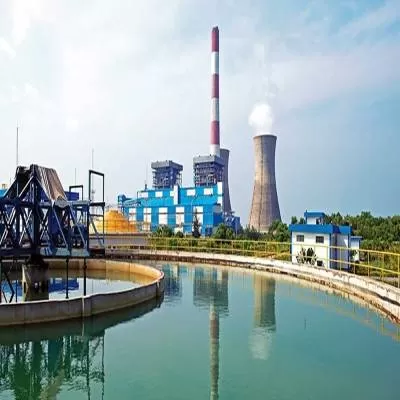Schedule a Call Back
Bihar to Install FGD Systems in Thermal Power Plants
 In response to rising concerns over air pollution caused by thermal power plants, Bihar's environment, forest, and climate change department is accelerating efforts to implement flue gas desulfurization (FGD) systems in six major thermal power units. These systems aim to curb the emission of sulfur dioxide (SO2), a major pollutant, thereby reducing its environmental impact.
In response to rising concerns over air pollution caused by thermal power plants, Bihar's environment, forest, and climate change department is accelerating efforts to implement flue gas desulfurization (FGD) systems in six major thermal power units. These systems aim to curb the emission of sulfur dioxide (SO2), a major pollutant, thereby reducing its environmental impact.
The issue was the focal point of a review meeting held on Sunday, chaired by Environment Minister Prem Kumar. The meeting also saw the participation of senior officials, including Bihar State Pollution Control Board (BSPCB) Chairman D K Shukla and Member Secretary Neeraj Narayan. They discussed pollution levels and the operational status of six NTPC units in Bihar, focusing on the progress of installing FGD systems.
“Efforts are underway to install FGD systems in all power plants across the state,” said Minister Prem Kumar, according to a BSPCB press release. The meeting extensively addressed the FGD system’s importance in curbing SO2 emissions.
The meeting also reviewed the findings from a study by CSIR-NEERI, Nagpur, which was later evaluated by NITI Aayog in August. The study raised alarms about the high SO2 levels in emissions from Bihar's thermal power plants and underscored the urgent need for FGD installations. Additionally, IIT-Delhi is conducting another study to assess pollution control measures.
The Union Ministry of Climate Change has mandated the installation of FGD systems in all thermal power plants across India by 2026. However, Bihar is behind schedule in implementing these systems, as pointed out by the Centre for Research on Energy and Clean Air (CREA). The CREA report revealed that Bihar’s six major thermal plants emit approximately 181 kilotonnes of SO2 annually, a figure that is ten times higher than the emissions from burning paddy straw in Punjab and Haryana.
The six thermal plants in Bihar—Barauni Thermal Power Station, Barh Super Thermal Power Plant, Buxar Thermal Power Plant, Kahalgaon Super Thermal Power Station, Kanti Thermal Power Station, and Nabinagar Thermal Power Project—are responsible for these high emissions.
Despite the challenges, the meeting expressed satisfaction with the improvement in the air quality index (AQI) in the state this year compared to the previous year. Officials noted that the high levels of small dust particles like PM2.5 and PM10 had negatively impacted the AQI in the past.


Subscribe Now
Subscribe to our Newsletter & Stay updated
RECENT POSTS
Popular Tags
Folliow us
Related Stories
Ion Exchange Arm Bags Rs 17.3 bn Order from Petroleum Development Oman
An arm of Ion Exchange has secured an order worth Rs 17.3 billion (bn) from Petroleum Development Oman, according to a company statement. The trans...









